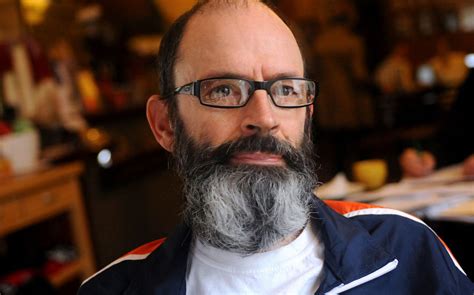A Quote by J. I. Packer
Do I as a Christian understand myself? Do I know my own real identity? My own real destiny? I am a child of God, God is my Father; heaven is my home; every day is one day nearer. My Saviour is my brother; every Christian is my brother too. Say it over and over again to yourself first thing in the morning, last thing at night, as you wait for the bus, any time when your mind is free, and ask God that you may be enabled to live as one who knows it is all utterly and completely true. For this is the Christians secret of the Christian life, of a God-honouring life.
Quote Topics
Again
Am
Any
Ask
Brother
Bus
Child
Child Of God
Christian
Christian Life
Christians
Day
Destiny
Every
Every Day
Father
First
First Thing
Free
God
Heaven
Home
Identity
Know
Knows
Last
Life
Live
May
Mind
Morning
My Brother
My Own
Myself
Nearer
Night
One Day
Over
Own
Real
Saviour
Say
Secret
Thing
Time
Too
True
Understand
Utterly
Wait
Your
Yourself
Related Quotes
What you have to understand, is your father was your model for God. If you're male and you're Christian and living in America, your father is your model for God. And if you never know your father, if your father bails out or dies or is never at home, what do you believe about God? What you end up doing is you spend your life searching for a father and God. What you have to consider is the possibility that God doesn't like you. Could be, God hates us. This is not the worst thing that can happen.
Christian community is like the Christian's sanctification. It is a gift of God which we cannot claim. Only God knows the real state of our fellowship, of our sanctification. What may appear weak and trifling to us may be great and glorious to God. Just as the Christian should not be constantly feeling his spiritual pulse, so, too, the Christian community has not been given to us by God for us to be constantly taking its temperature.
The Christian life is not just our own private affair. If we have been born again into God's family, not only has he become our Father but every other Christian believer in the world, whatever his nation or denomination, has become our brother or sister in Christ. But it is no good supposing that membership of the universal Church of Christ is enough; we must belong to some local branch of it. Every Christian's place is in a local church. sharing in its worship, its fellowship, and its witness.
Optimism is a wish without warrant; Christian hope is a certainty, guaranteed by God himself. Optimism reflects ignorance as to whether good things will ever actually come. Christian hope expresses knowledge that every day of his life, and every moment beyond it, the believer can say with truth, on the basis of God's own commitment, that the best is yet to come.
The real issue relating to exclusiveness is whether or not the Christian actually has a relationship with God, a presence of God, which non-Christians do not have. Apart from Christian spiritual formation as described here, I believe there is little value in claiming exclusiveness for the Christian way.
The Christian is the person who sees every time and every situation, however dreary and repetitive, as God sees it - a fresh creation from his hand, demanding its own response in perhaps a wholly new and creative way. Under God he is free over it. He has won through to a purchase over events; he has risen with Christ.
When one person is struck by the Word, he speaks it to others. God has willed that we should seek and find His living Word in the witness of a brother, in the mouth of man. Therefore, the Christian needs another Christian who speaks God’s Word to him. The Christ in his own heart is weaker than the Christ in the word of his brother; his own heart is uncertain, his brother’s is sure.
God, thank you for waking me up this morning. I want to embrace every day, however limited my day may be, as a gift from God. I want to live this day to its fullest. I know there are things I can no longer do. I know I am facing daily limitations. But I want to focus on what I can do, not on what I cannot do. So help me God. I know this day will never be repeated. I know I cannot live it over again. Help me to live it to its fullest.
Such true worship will stand the test of Christ's great principle, “By their fruits you shall know them”. It sanctifies the Christian's life, and makes them walk with God, lifting them above fear and love of the world. It enables a Christian to show God to other folks. Such worship comes from heaven, and has the mark of God upon it.
Surely it is a matter of joy, that your faith in Jesus has been preserved; the Comforter that should relieve you is not far from you. But as you are a Christian, in the name of that Saviour, who was filled with bitterness and made druken with wormwood, I conjre you to have recourse in frequent prayer to 'his God and your God,' the God of mercies, and father of all comfort. Your poor father is, I hope, almost senseless of the calamity; the unconscious instrument of Divine Providence knows it not, and your mother is in heaven.
Because I am a Christian, therefore, every day in which I do not penetrate more deeply into the knowledge of God's Word in Holy Scripture is a lost day for me. I can only move forward with certainty upon the firm ground of the Word of God. And, as a Christian, I learn to know the Holy Scriptures in no other way than by hearing the Word preached and by prayerful meditation.
When [the saints] perform actions to God, then the soul says: 'Oh! that I could do what pleases God!' When they come to suffer any cross: 'Oh, that what God does might please me!' I labour to do what pleases God, and I labour that what God does shall please me: here is a Christian indeed, who shall endeavour both these. It is but one side of a Christian to endeavour to do what pleases God; you must as well endeavour to be pleased with what God does, and so you will come to be a complete Christian when you can do both, and that is the first thing in the excellence of this grace of contentment.
The liturgical year is the year that sets out to attune the life of the Christian to the life of Jesus, the Christ. It proposes, year after year, to immerse us over and over again into the sense and substance of the Christian life until, eventually we become what we say we are - followers of Jesus all the way to the heart of God



































